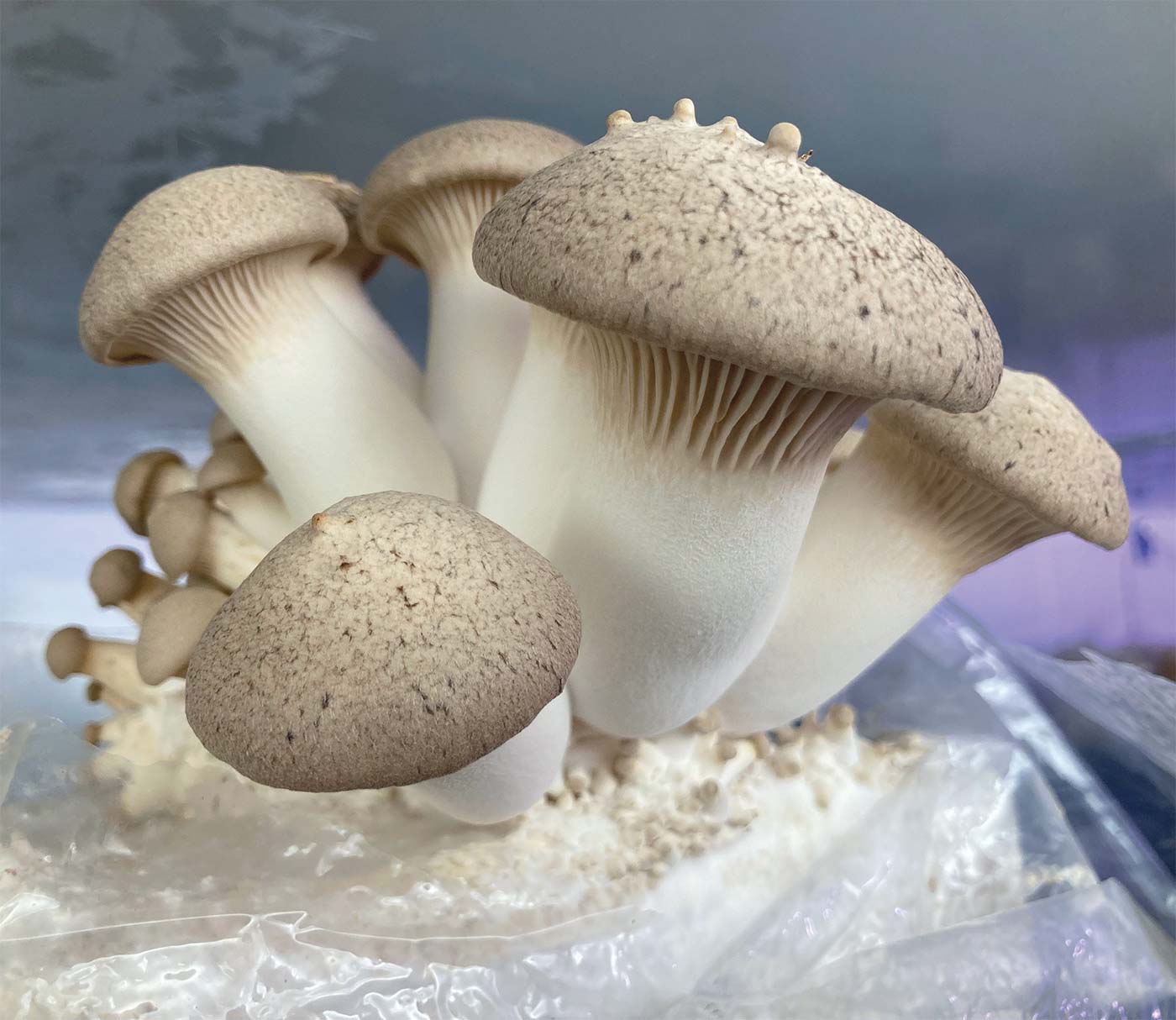The Miracle of Mushrooms
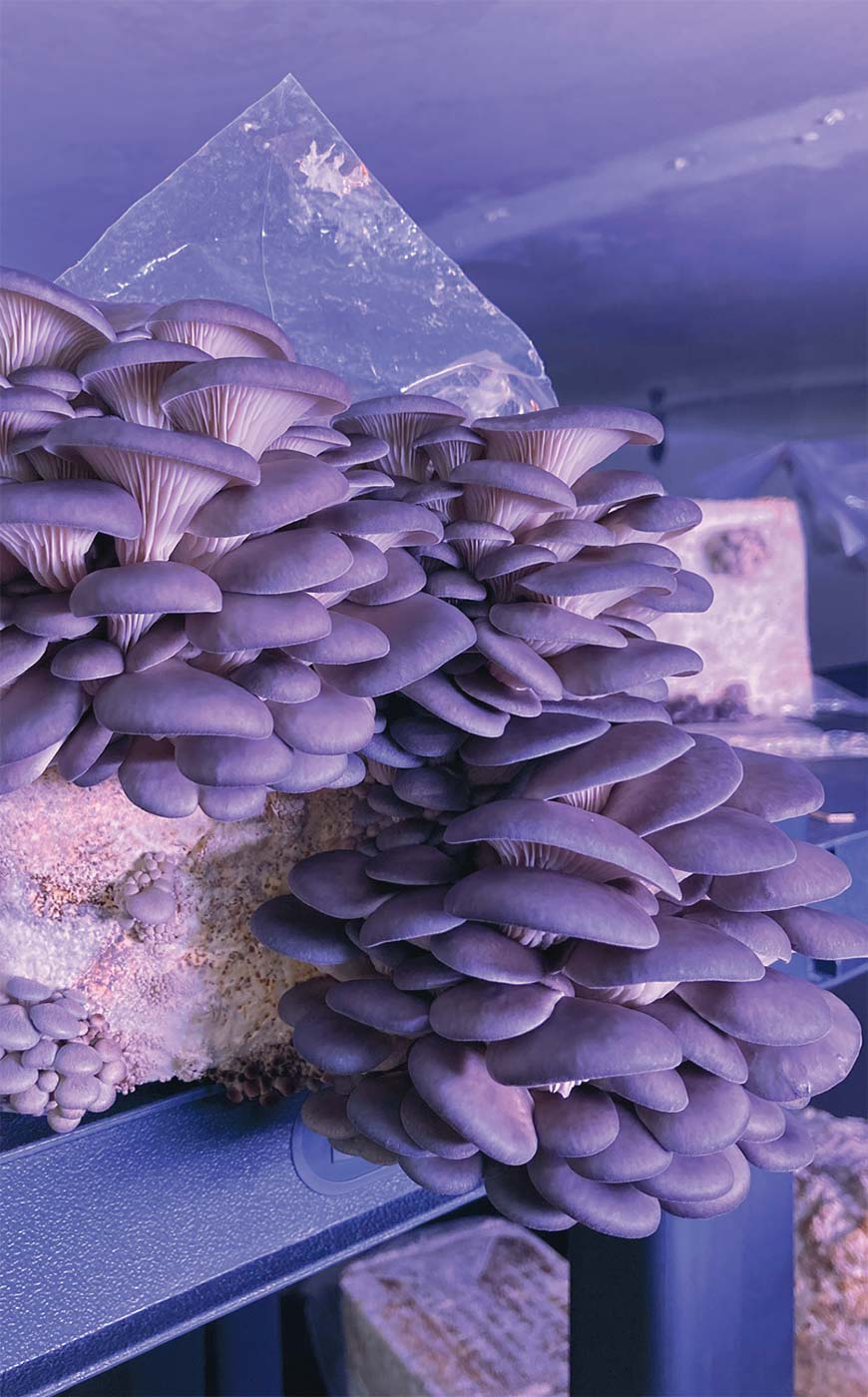
Oyster mushrooms flourish at Sole Connection Farm
Unconventional farming may be the way forward, Patrick believes, particularly with challenges caused by climate change.
Ever think about the nutrient qualities of pine versus oak or maple trees? Patrick McLaughlin does. The young farmer can wax rhapsodic about how the sawdust from different species of trees impacts the gourmet mushrooms he cultivates at his farm in Arlington. Huh?
Sole Connection Farm mushrooms grow in biodegradable plastic bags packed with a dense substrate mixture that Patrick produces from sawdust, straw, hay, and other materials rescued from the local waste stream. A carpenter down the road drops off bins of sawdust; local farmers provide spent straw and hay. “We can grow mushrooms on almost any farm roughage as long as we’ve sterilized and pasteurized it,” Patrick says.
Patrick will soon incorporate used coffee grounds from local restaurants as yet another nutrient supplement to feed his mushrooms. And once the hundreds (and hundreds!) of substrate blocks cease producing flushes of mushrooms, Patrick adds them to his compost pile out back where they start their next job: enhancing the soil that nourishes the gardens where he grows crops that feed his family and local customers. An elegant zero-waste system that sustains his burgeoning business while saving the environment.
In a warren of elaborate rooms with plastic wallboard and special lighting, Patrick grows 12 types of gourmet mushrooms: 6 varieties of oyster, shiitake, chestnut, king trumpet, pioppino, black pearl, and lion’s mane. He also cultivates reishi and turkey tail, two medicinal mushrooms. He harvests around 200 pounds a week and sells them to a dozen restaurants and cafés in Manchester, Dorset, and Bennington. Sole Connection mushrooms are also available at Wayside Country Store in West Arlington and Dutton Farmstand in Manchester. During summer, Patrick is a vendor at the Arlington Farmers’ Market.
Although mushrooms are 90 percent water, Sole Connection’s cultivated treasures retain a pleasantly dense texture and exquisite flavor, which make them popular with regional chefs and home cooks alike. “Local folks can place an order by phone and swing by the farm to pick them up,” Patrick offers. He also prepares medicinal tinctures and dehydrated mushrooms with a long shelf-life.
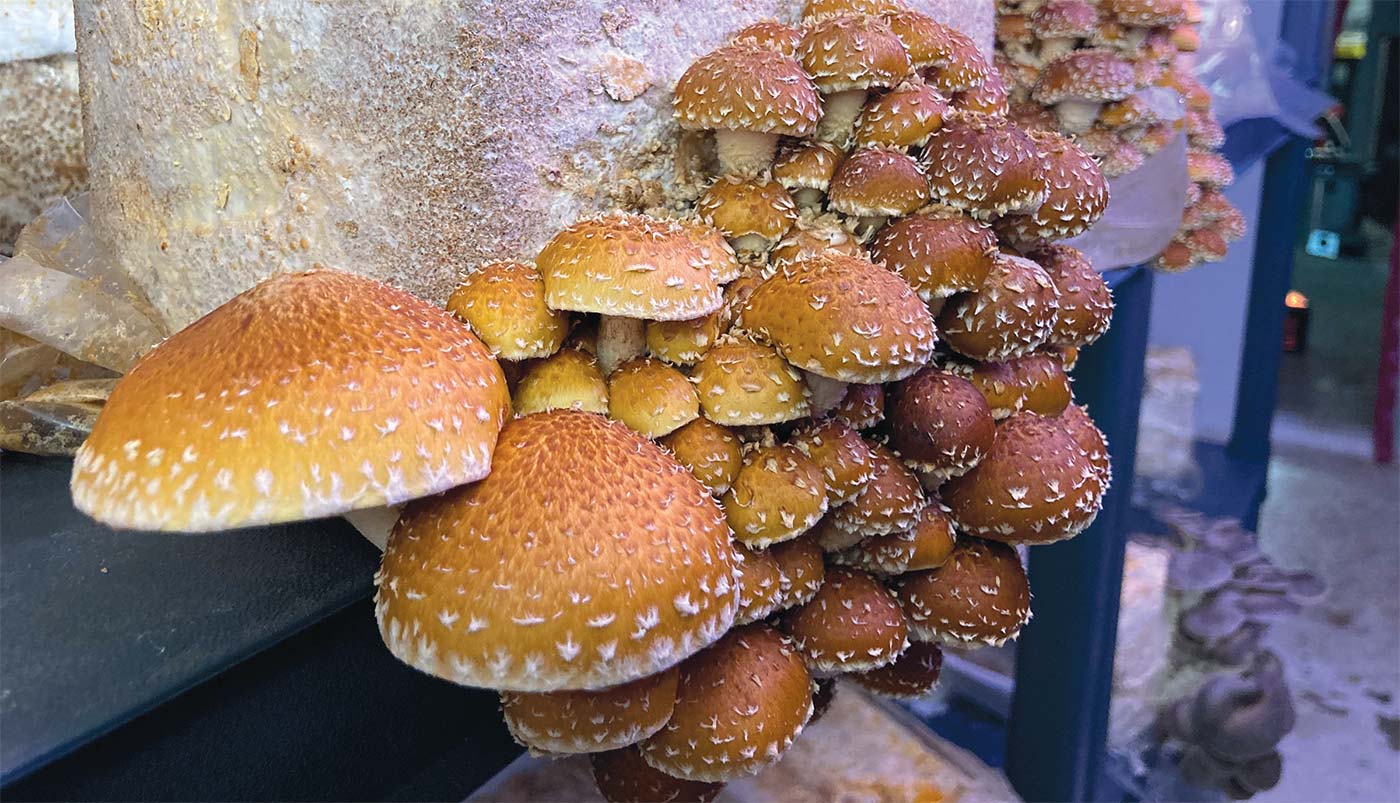
Clusters of chestnut mushrooms ready for harvest
“We’re building capacity to meet increasing demand,” he says. This spring, he and his team will complete construction on a 1,500-square-foot steel container that will house the indoor growing operation. “It will be a highly controlled atmosphere to ensure the mushrooms grow safely in the purest air possible. I worked on the design with researchers at University of Vermont, where I’m a guest lecturer in a microbiology remediation course.” He also lectures at Bennington College’s Purple Carrot Farm. Once the building is up and running, Patrick will transition his current cultivation operation from the basement of his home to the steel building outside. Then, he will transform the basement into a subterranean “farm,” where he will set up rich, soil-filled beds and grow greens under lights.
Unconventional farming may be the way forward, Patrick believes, particularly with challenges caused by climate change. “I worry about long-term food security. These controlled environments for growing nutrient-dense mushrooms and produce, with zero waste, can be a sustainable model for other communities.”
Sole Connection Farm’s cultivated treasures retain a pleasantly dense texture and exquisite flavor, which make them popular with regional chefs and home cooks alike.
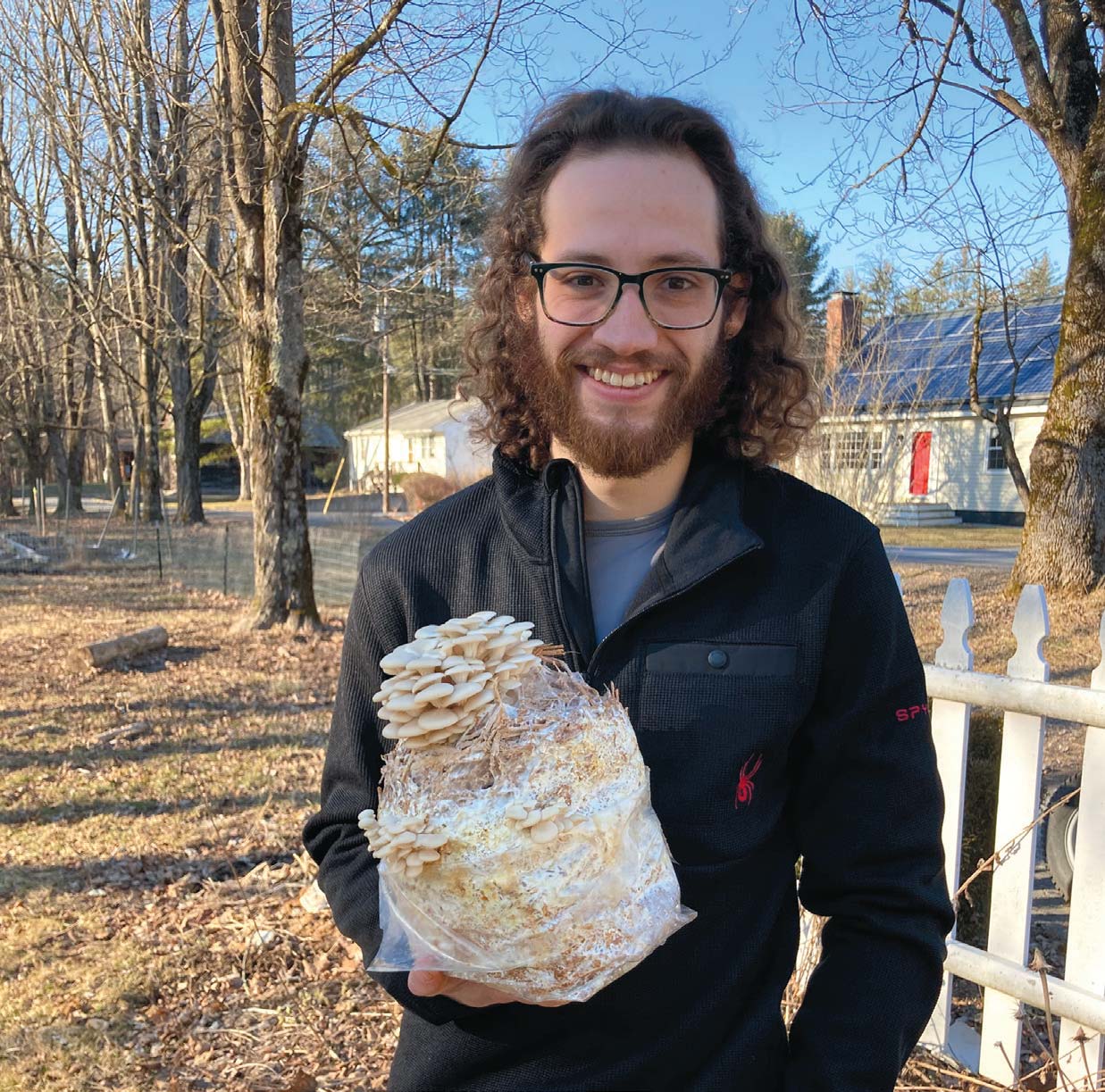
Patrick McLaughlin of Sole Connection Farm
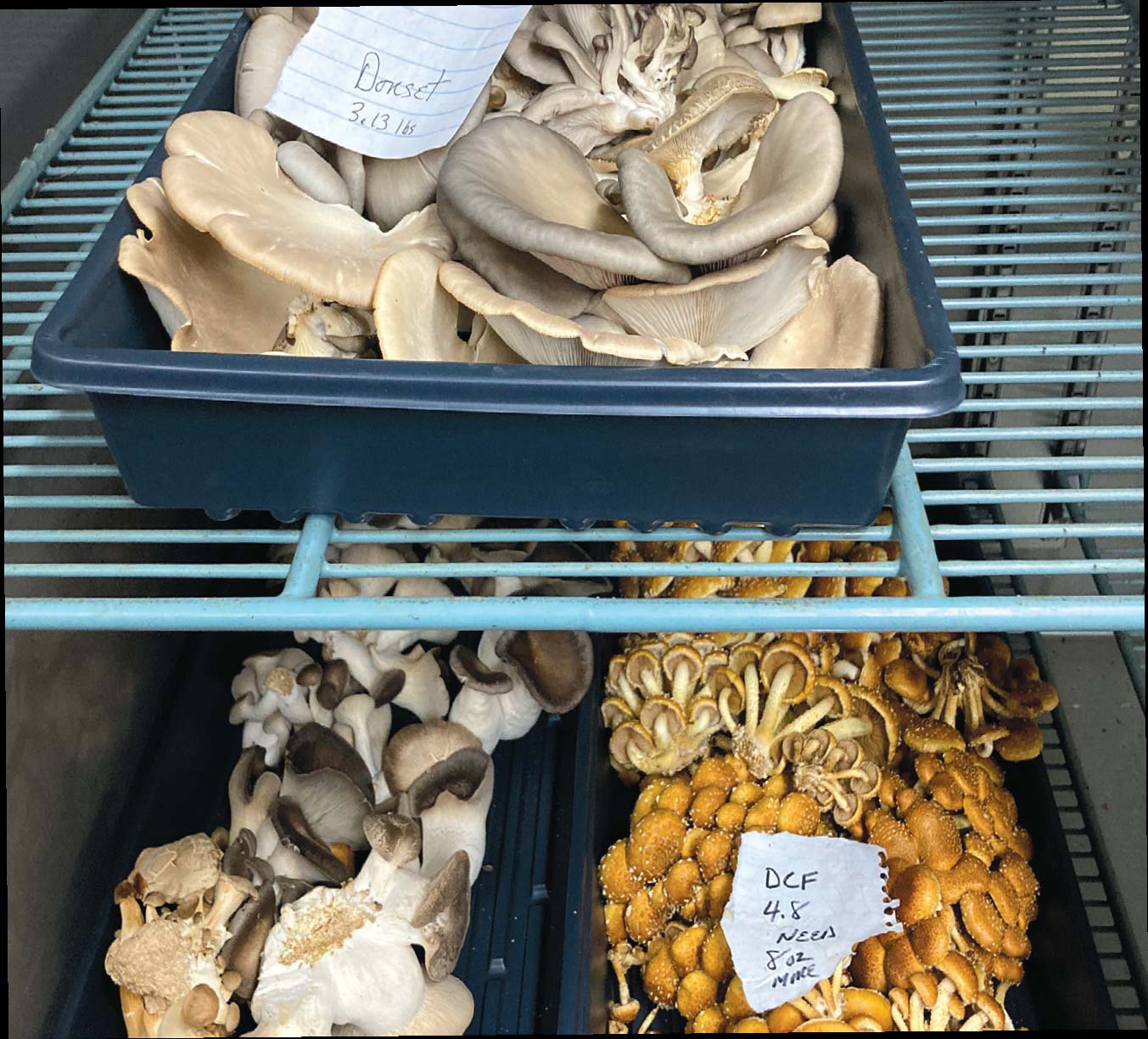
Trays of oyster, black pearl, and chestnut mushrooms await delivery to Manchester area stores and restaurants.
Patrick fell in love with mushrooms’ limitless potential for health and wellness, culinary, and environmental purposes. He devoured books by the renowned mycologist Paul Stamets and went down the internet rabbit hole to further his education. He and his partner, Cassie, established their Arlington farm in September 2022. “My dream is to encourage small growers to get started. Our new building can accommodate six or seven other growers’ operations. The more mushroom growers we have in this area, the more spent sawdust blocks available to compost for enriched soil to offer the community. Healthy composted soil retains water, which reduces the potential for flooding.”
Climate resilience. Community building. Innovative approaches. All emerging from one man’s belief that delicious mushrooms can in fact change the world.
“Controlled environments for growing nutrient-dense mushrooms and produce, with zero waste, can be a sustainable model for other communities.” –Patrick McLaughlin
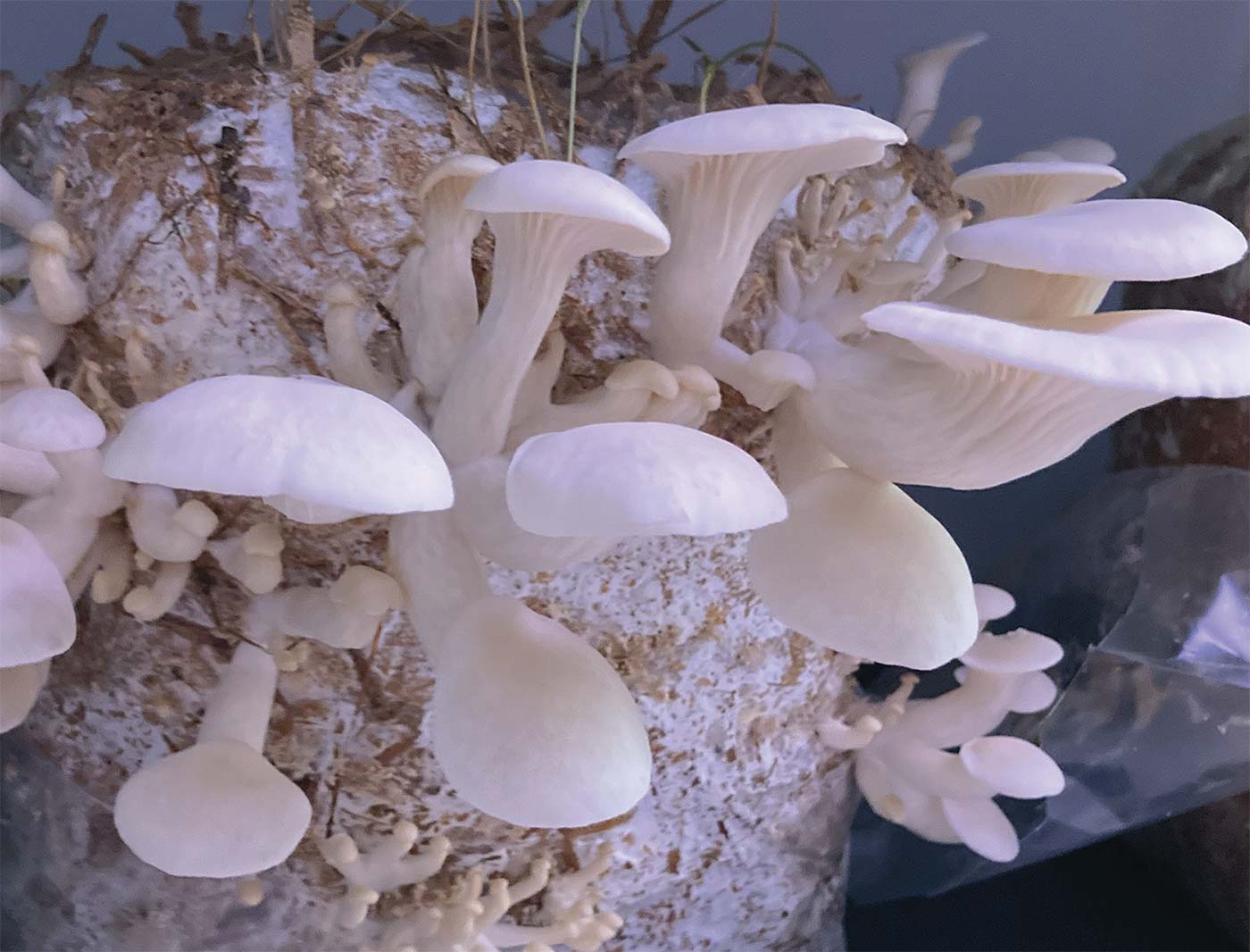
Alabaster white oyster mushrooms are rich in antioxidants.
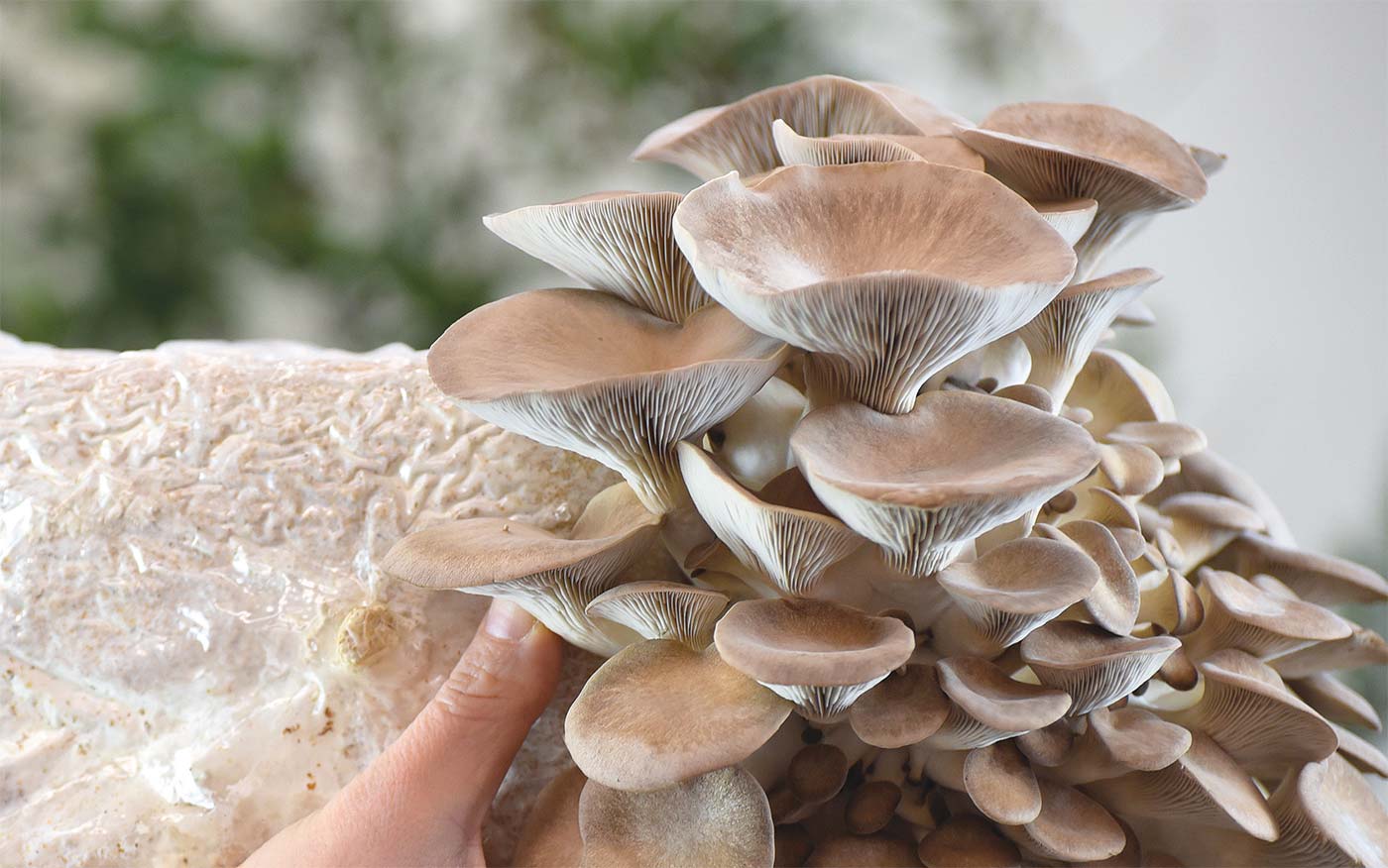
Home-grown Black Pearl mushrooms ready to harvest. Photo courtesy Field & Forest Products.
FUNGI FUN AT HOME
It’s mud season in Vermont and you’re craving mushrooms. However, it’s too early to get out and explore the carpeted forest floor for morels. If you’re fortunate, you could score some locally grown mushrooms at your farmers’ market or co-op, or even find decent varieties in the supermarket.
But if none of those options fit, you still have one more possibility: growing your own mushrooms at home. I’m not talking about those hardwood logs you drill and pack with shiitake spawn (although they’re also a fun project). I’m suggesting you hop on the internet and check out places that sell mushroom grow kits for home.
Over the years, I’ve ordered indoor Table Top Farms from Field & Forest Products, a respected company based in Wisconsin. They offer eight varieties of mushrooms (oyster, shiitake, black pearl, chestnut, pioppini, king trumpet, lion’s mane, and reishi). Each $26 kit arrives as a pre-inoculated and incubated hardwood sawdust block. You simply remove the 8-by-6-inch block (it looks like a loaf of dense hippie bread from the 1960s!) from its packaging, poke four chopsticks or other wooden skewers in each corner, then enclose it in the accompanying large plastic bag that serves as a tent to hold in moisture. Within days, you’ll see little mushroom heads emerging from the compact block, and depending on the variety, you’ll be able to harvest fully formed mushrooms within a week or so. Each block is guaranteed to produce at least one flush of fresh, tender, flavorful mushrooms, and some types will generate two or more pounds over the course of fruiting. Indoor house temperature and humidity levels can affect fruiting, but the Field & Forest website offers clear guidance to help you select what works best for your living conditions.
These kits are the perfect gift for mycophiles, cooks, and gardeners of all ages. Mushroom-loving kids seem especially fascinated by the process and relatively quick results. Unopened kits can be stored in your refrigerator for up to a month if you want to order several at once and stagger your production. Even mushroom fans have to pace themselves, after all.
My most recent kits arrived on my doorstep in late January. Gleefully, I set up my shiitake block on an aluminum takeout pan, loosely enshrouded it in the plastic bag, placed it on top of my clothes dryer out of direct sunlight…then walked away. As the days passed, I giggled every time I peered through the plastic: fat, beige caps growing larger seemingly by the hour. Ten days after the kit arrived, I harvested my crop, sautéed them in butter, minced garlic, salt, and pepper and savored a homegrown, earthy feast. The block produced a second flush, albeit more slowly, a good exercise in patience. I’ll work my way through the remaining three kits while I wait for spring to take hold and the forest floor to warm. Foraging season will soon be here, but for now, I’m satisfying my mushroom mania by growing them at home. No fuss, no mess. Just flavorful fungi fun.
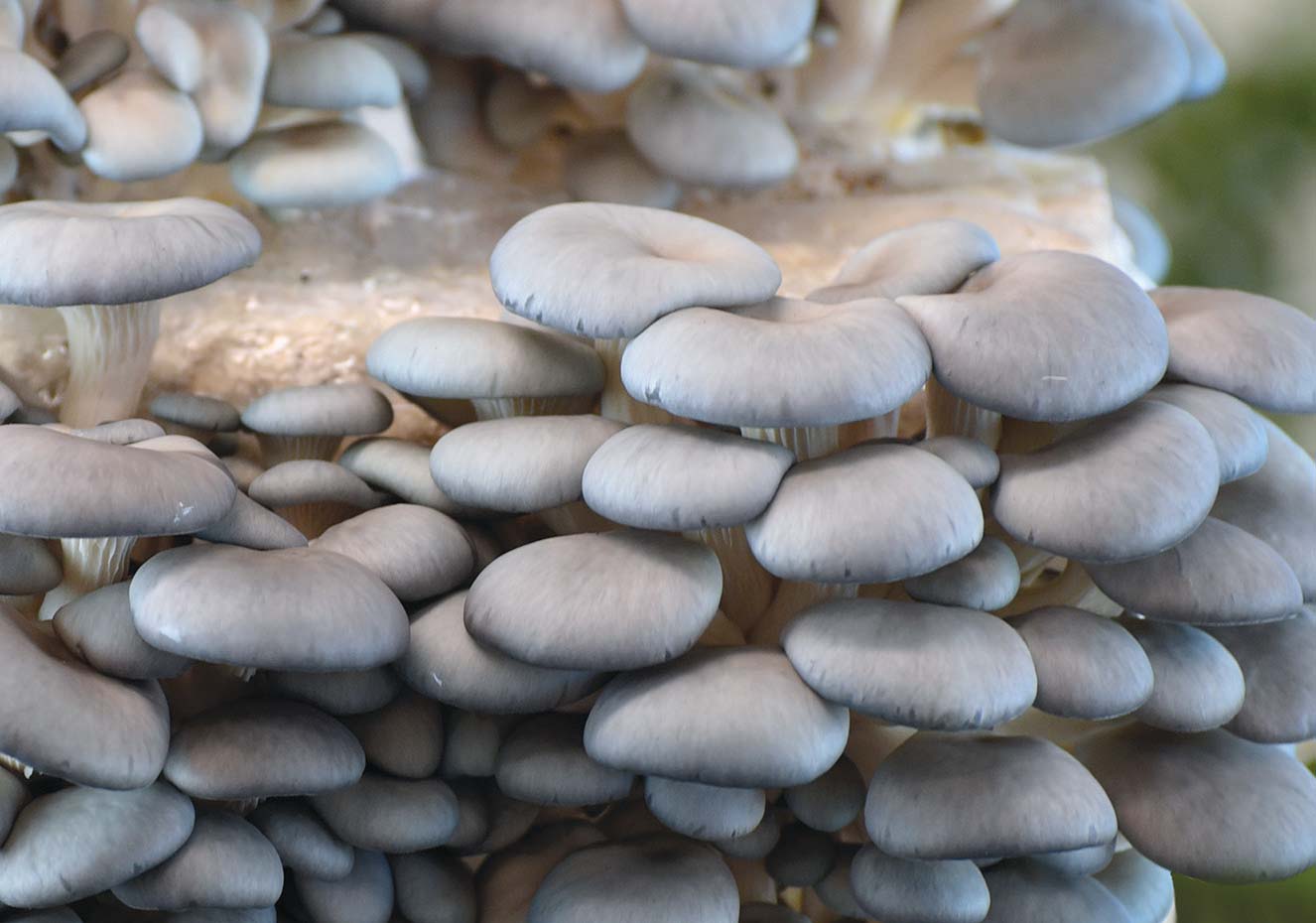
Tender and succulent Grey Dove mushrooms you can grow at home with a Field & Forest kit. Photo courtesy Field & Forest Products.


